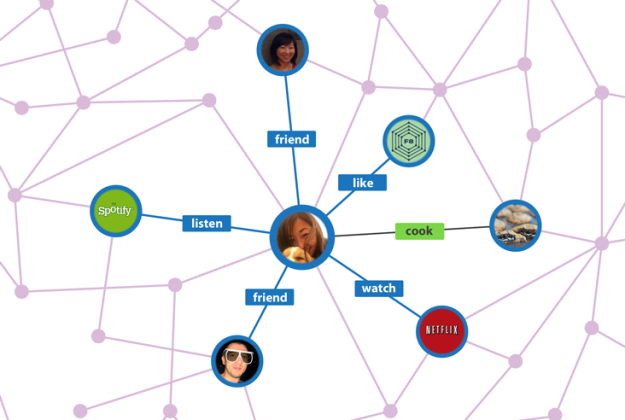
We anticipated big changes hitting Facebook with f8, and we were right. Features like the Timeline and Spotify’s full-throttle integration approach have managed to secure a bit of spotlight, taking attention away from what will likely have the longest lasting affects not only on the social network but on the Internet in its entirety: Facebook’s new Open Graph.
The big difference between the Open Graph (now in beta) and Facebook’s past API extension for third parties is that, in the site’s own words, it now will “include arbitrary actions and objects created by third party apps and enabling these apps to integrate deeply with the Facebook experience.”
And as we touched on in our Timeline FAQ, the newly formatted profile is tightly woven into this tapestry. “After a user adds your app to their Timeline, app specific actions are shared on Facebook via the Open Graph. As your app becomes an important part of how users express themselves, these actions are more prominently displayed throughout the Facebook Timeline, News Feed, and Ticker. This enables your app to become a key part of the user’s and their friend’s experience on Facebook.”

In other words, new and endless potential for marketers. And there are a few ways to look at this, the most obvious being to cry for the complete loss of our privacy. But the bigger picture here is that Facebook is trying to find some sort of balance between being a product for consumers and a platform for businesses. The Open Graph gives companies a new way to engage with their target audience.
And if you thought that was a way to catapult brands, business intelligence technology company MicroStrategy is interested in taking it a step further. “The Open Graph API is good only for a narrow set of applications: Those mostly intended to write data back to Facebook—post on your wall or something,” the company’s SVP of product Mark LaRow says. “What it’s not good for is saying ‘give me everybody in this demographic with these interests and likes,’ because to everyone in that group I want to make a special offer—that kind of query in the Facebook world would take hundreds of thousands of queries to answer.”
LaRow explains that though Facebook has harvested an intense amount of consumer data, the API doesn’t work to allow companies to extract that in the most efficient means possible. And while that’s not necessarily a fault of the site—to be so specific requires manpower and hours that the company devotes to the user end, he reasons—it leaves brands wanting more.

So should consumers be worried that brands will be able to target them that much more? Is this messing with the balance? “Right now it’s a very good marriage of business needs and Facebook’s desire to capture more data,” MicroStrategy director of product marketing Brian Brinkmann says. “But that has to coincide with what users want—a more personal relationship with their brands.”
It’s hard to argue he’s wrong. Aside from privacy advocates crying foul at the Open Graph’s marketing potential, users continue to show their love of brands on Facebook. Facebook Pages and the Like button have had amazing success, and no matter how much we might protest otherwise the general population has been proving they want this highly integrated, personalized experience with their favorite brands.
This seems so true that many believe we’re seeing a paradigm shift in how the public thinks of privacy and how marketers reach them. “Engagement with brands will become more normal. We think there’s going to be a tipping point. This type of ad engagement is going to become more of the norm—it will make sense to interact this way,” he says.
Not only have consumers largely shown they want to connect with brands via Facebook, there is another factor that’s difficult to ignore: Job creation. A recent report from the University of Maryland found that the Facebook platform and app ecosystem has added 182,744 full time jobs to U.S. job market. And SimplyHired COO and co-founder Dion Lim thinks that’s a conservative estimate.
“Over the last 12 months we looked at the number of job listings related to Facebook and we had calculated there were at least 250,000. So that tells me that the magnitude was pretty accurate and I would even argue that the University of Maryland’s estimate might be light.”
When we asked what kind of impact the changes to Facebook’s Open Graph and new class of apps would have on the job market, Lim didn’t hesitate. “I think it’s going to be huge,” he says. “That kind of seismic change will create jobs.”
Still, it’s hard to ignore the fresh privacy concerns that roll in day after day. Advocates say the Open Graph is a treasure trove for marketers. Some go as far as to call it exploitative and think Facebook will soon be investigated for the update.
“Facebook didn’t get it 100-percent right. A lot of people don’t want that much sharing,” says Lim. “But I think Facebook is going to be the company that will enable people to share information in a way that they want to share information. The baby photos will only be shared with friends they want to see them. The industry article shared with people they want to see it; what they had for lunch with the people they want to see that… it’s going to take some time but it will eventually get there.”
Despite missteps, many seem to believe that CEO Mark Zuckerberg is on the user’s side, that these privacy holes are more trial and error than anything else—and that consumers’ reactions will shape the end product. Either that or our online identities are so woven into Facebook that whatever the norm becomes there, consumers will assimilate to.
“I really believe that what they launched [at f8] was user-oriented,” says Lim. “In general, Facebook is going to follow the user.”
